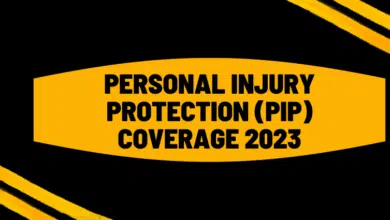Why Your Credit Score Matters for Car Insurance

Why Your Credit Score Matters for Car Insurance
Are you in the market for a new car? Or maybe it’s time to renew your auto insurance policy? Either way, one thing that could impact how much you pay for coverage is your credit score. Yes, that three-digit number can have a big impact on your premiums. In this post, we’ll explore why your credit score matters when it comes to car insurance and what you can do to keep costs down. So buckle up and let’s hit the road!
What is a credit score?
Credit scores are used by lenders to determine your eligibility for a loan, and your interest rate on the loan. Your credit score is also used to help companies decide whether to give you a credit card or extend an existing credit line. When considering car insurance, your credit score can help you get a lower premium if you have a good history of paying bills on time.
A credit score is based on data from your past borrowing and lending activities. The three major credit bureaus (TransUnion, Experian, and Equifax) compile this data and create a number between 300 and 850 (higher being better). A good credit score will indicate that you’re capable of managing your finances responsibly. A low score may mean you’ve had trouble meeting debt obligations in the past or that you’re considered a high-risk borrower because of your income or financial history.
Your lender will use information in your credit report to determine how much they’re willing to lend you for a car purchase or mortgage. A low car insurance premium may be the result of having a good credit score.
How to get a good credit score
Your credit score is a measure of your creditworthiness and affects both the interest rates you may be offered on loans and the price of your car insurance. A good credit score means that lenders are more likely to lend you money, and insurers are more likely to offer you a lower premium.
There are three main factors that go into calculating a credit score: your payment history, the amount of debt you have and your credit utilization ratio (ratio of total debt compared to your available credit). Your payment history is based on how often you make payments on your bills on time. The amount of debt you have is based on the outstanding balance of all your borrowing obligations, including short-term loans and mortgages. Your credit utilization ratio is calculated by dividing total outstanding debt by the sum of all available lines of credit, such as unsecured personal loans, car loans and revolving accounts (like those from banks or department stores).
To improve your credit score, make sure all your bills are paid on time and keep an accurate record of all your borrowing transactions. Avoid using too much available credit to purchase items that can be paid for over time, like furniture or appliances. If you find yourself struggling to pay back debts accumulated in the past, contact a financial counselor or bankruptcy lawyer for advice on how to get out from under them.
The factors that affect your credit score
Credit scores are a way to measure your credit risk. Your score is based on your credit history and the terms of your loans. A high score means that you’re considered to have less risk of not paying your loans back. A low score can mean you’ll pay more in interest and fees.
Your credit score affects how much you’ll pay for car insurance. A good credit score will help you get lower rates, while a poor score can lead to higher rates. Here are some other factors that affect your car insurance rates:
-Your age: Younger drivers tend to have higher rates than older drivers because they’re less experienced and may be more likely to make mistakes on their cars or debts.
-Your driving record: If you have a clean driving record, insurers will charge you lower premiums, but if you have any traffic violations or accidents, your rates could go up considerably.
-Your location: If you live in an area with high crime rates, your rates could also go up because insurers consider your car as a greater investment.
What happens if you have a low credit score?
If you have a low credit score, your car insurance rates will likely be higher than if you have a high credit score. Your car insurance company may also require you to pay higher premiums for factors such as having a history of accidents or being uninsured. If you’re considering getting a new car, it’s important to get pre-approved for auto loans so that your credit score is as strong as possible.
How to improve your credit score
If you have poor credit, car insurance rates can be significantly higher than they would be for someone with a good credit score. The good news is that there are things you can do to improve your credit score. Here are five steps to boosting your credit score:
1. Stay current on your debt payments. This is the most important step in improving your credit score. If you’re not making your monthly loan payments on time, this will reflect negatively on your credit report and could cause your borrowing costs to go up.
2. Keep a close watch on your utilization ratio. Your utilization ratio is the percentage of your total available credit that you’re using. Use only what’s necessary and make sure every account is used appropriately.
3. Maintain a clean credit history. If there are any derogatory items on your record, such as bankruptcy or missed debt payments, it will impact your score negatively. Make sure all past debts are paid off and no new accounts are opened without first getting approved by the bank or lending institution involved.*
4. Participate in approved financial counseling programs.* Counseling can help you learn how to improve your finances and avoid future problems with debt repayment or spending habits.*
5. Build up a healthy savings account balance.* A strong savings history will help build confidence in lenders, showing that you can handle unexpected expenses in the future without resorting to borrowing money.*
Conclusion
Your credit score is one of the most important factors when it comes to getting car insurance. A high credit score indicates that you are a responsible borrower and likely to pay your bills on time. A low credit score can mean you will be charged higher rates and may not be approved for a loan at all. So make sure you keep up with your payments and stay disciplined with your spending so your credit score stays positive.




